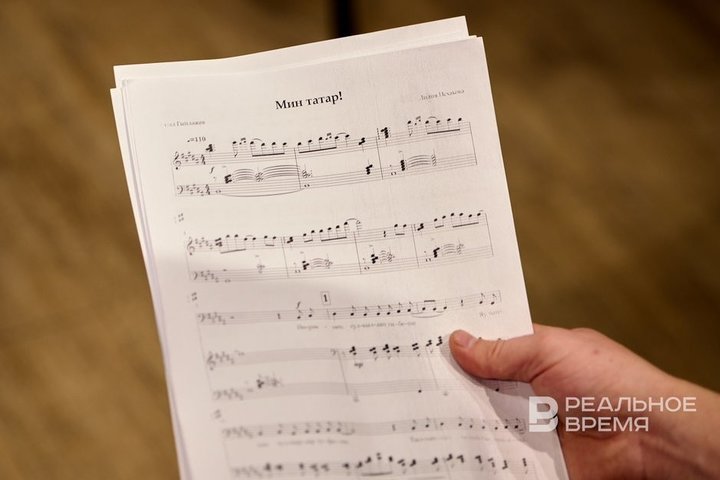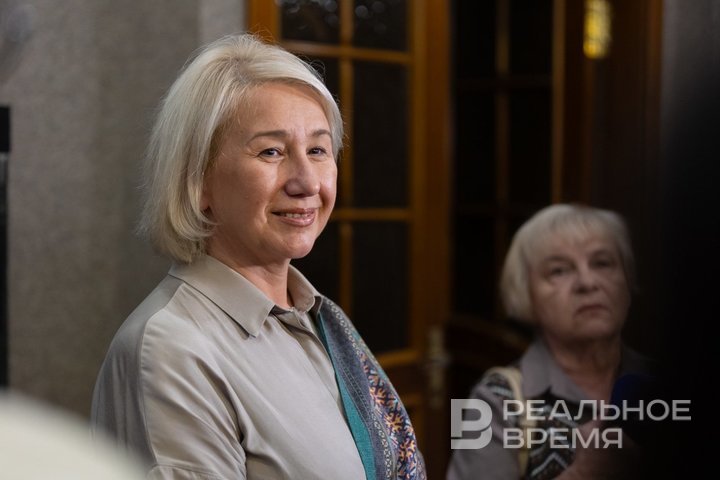How to develop culture in the countryside?
In Tatarstan, specialists in this field are going to be given a million rubles for moving to the countryside

Along with the Rural Doctor and Rural Teacher, the Rural Worker of Culture programme has been launched in Russia. Tatarstan expressed its interest in it a year ago — and now a draft resolution of the Cabinet of Ministers of the Republic on the procedure for providing one-time payments to specialists who move to sparsely populated areas is undergoing an anti-corruption examination. The programme should attract personnel to villages and help solve the problem of the shortage of cultural workers. One of the main features is that the project is aimed not only at young people. Read more about the prospects in a report of Realnoe Vremya.
A million for moving to the countryside
At the beginning of 2025, the Rural Worker of Culture programme was launched in Russia. Tatarstan has also decided to take part in it — a draft of the corresponding resolution has appeared, which is currently undergoing an anti-corruption examination.
The programme is aimed at cultural specialists who have decided to move to a village or a small town with a population of less than 50,000 people. In Tatarstan and other regions, they will be given a one-time payment of one million rubles. Workers who have moved to settlements in the territories of the Far East, the DPR, LPR, Zaporozhye and Kherson regions will receive 2 million rubles.
According to the Tatarstan project, specialists for participation in the programme will be selected on a competitive basis. Cultural workers under 55 years of age with a specialised education can take part in it. The funds will be allocated from the republican budget, including federal subsidies.

The winner must sign a contract with a rural cultural institution for a period of at least five years. In this case, if an employee is dismissed before the end of the contract, part of the payment is returned to the republican budget.
The programme was announced in February 2024 by Russian President Vladimir Putin, he expressed hope that it would help attract about 10 thousand workers to villages. At the same time, republican Minister of Culture Irada Ayupova announced Tatarstan's interest in the project:
“This project is being discussed. It is important that qualified personnel come to work in the village. We know this problem, we are dealing with it. At the republican level, there are funds allocated for the payment of the first grants for young people who return to work in the districts.”
“We have a difficult year ahead”
The programme has two main features: no age limit and coverage not only of villages, but also of small towns. Minister of Culture of Tatarstan Irada Ayupova told Realnoe Vremya about this.
“The question of whether an employee will stay in the village after the contract expires cannot be considered unambiguously. There are people who stay, there are those who leave. Each case is individual. But the program allows older people who want to return to their roots to return to their native lands. They can stay after the contract expires,” she shared her opinion.

At the same time, the shortage of personnel is felt not only in villages, but also in small towns. Ayupova put an example: Mamadysh is a city, but the issue of a shortage of cultural workers there is just as acute.
“In Europe, a very large number of people live in rural areas or in agglomerations. In recent years, our roads and interchanges have been actively developing. From this point of view, the accessibility of urban infrastructure for rural residents is very high,” the minister added.
In response to a question from a Realnoe Vremya correspondent about the situation with personnel in Kazan cultural institutions, Ayupova said that it depends on the specialty. For example, the city is experiencing a shortage of exhibition project curators: “There is high competition in some areas, and a deficit in others.”
“This year will be difficult for us, since we are just starting to build a methodological base for the program, and determine the specialties that require personnel,” the minister summed up. “I hope that we will succeed. The first year is always difficult, we will work out the methods. And then, I think, a lot will be regulated and it will become easier.”
Only 5% of culture workers are under 25 years old
As Realnoe Vremya was told by the press service of the Ministry of Culture of Tatarstan, there are currently 23,100 culture workers in the republic. Only 5% of them are under 25 years old. Moreover, the figure is decreasing every year. It is noteworthy that the number of employees by length of service does not differ much. Thus, 24% of Tatarstan residents have been working in the industry for 2 to 5 years, 19% — from 6 to 10 years, 18% — more than 25 years.
“At the same time, according to the forecast of the need for personnel training, the annual need for personnel training in the industry is about 3,000 people per year, mainly the need for employees is in municipal institutions,” the press service of the ministry said.
Accordingly, after receiving an education, young specialists do not go to work in budgetary institutions in their field, the Ministry of Culture explained. There are several reasons for this: low wages, lack of housing, complex transport logistics.
The ministry also added that in small towns, workers are mainly older.
“This year we plan to allocate a million rubles to 20 specialists as part of the implementation of the program in our republic,” the press service noted.
“This will not be enough for long”
Some scepticism about the effectiveness of the program was expressed in a conversation with Realnoe Vremya by the director of the Atna Theater Ramil Fazliyev. There are only 25 actors on the staff of his institution:
“The personnel issue in the countryside, of course, is always acute. In rural areas, this is always a problem. It is difficult for us to work, and this concerns not only cultural workers. Specifically, in our theatre, in addition to actors, there are few artists, sound engineers, and lighting engineers.”
According to him, there is no one to replace sick employees, and sometimes we have to cancel performances altogether.
“There are not enough specialists in our art school. This greatly affects the lives of children — they have nowhere to go, and in some areas, classes are simply ineffective. It turns out to be a very narrowly focused school — only for specialties where there are teachers. Children have no choice,” Fazliyev continued.

As for the programme, Fazliyev put an example from similar Rural Doctor and Rural Teacher: “People came literally for six months, and then returned to the cities.” The speaker admitted: he is not optimistic about the idea.
“I think people will come to villages for some time, but eventually they will return to the cities. I am not particularly optimistic about this,” the theatre director admitted. “This is a stimulating factor at the first stage, perhaps for beginning specialists, but this will not last long. Young people are still drawn to the city, they are bored here.”
At the same time, money is not what cultural workers pay attention to, Fazliyev added:
“If a person really wants to do art, he will not pay attention to money. These are passionate people, for them the size of the salary does not matter.”